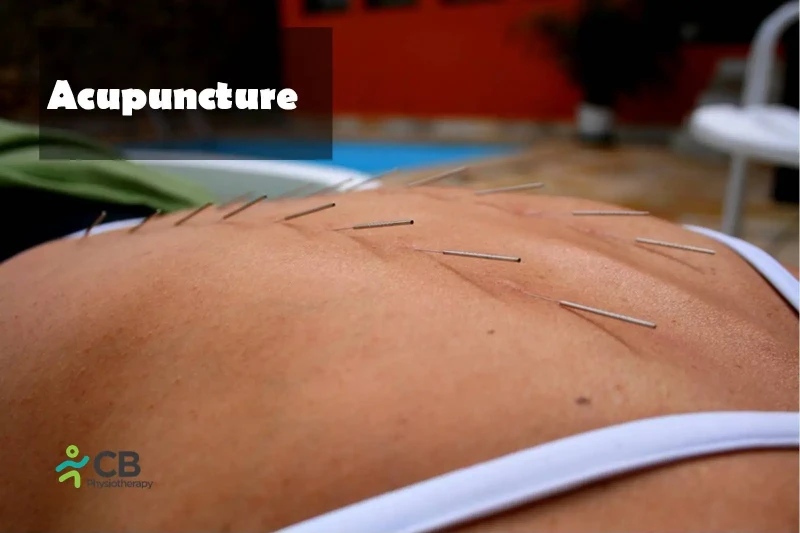
Acupuncture is the practice of penetrating the skin with thin, solid, metallic needles which are then activated through gentle and specific movements of the practitioner's hands or with electrical stimulation. Acupuncture is part of the ancient practice of Traditional Chinese medicine. Traditional Chinese medicine practitioners believe the human body has more than 2,000 acupuncture points connected by pathways or meridians. These pathways create an energy flow (Qi, pronounced "chee") through the body that is responsible for overall health. Disruption of the energy flow can cause disease. By applying acupuncture to certain points, it is thought to improve the flow of Qi, thereby improving health. Acupuncture is not for everyone. If you choose to see an acupuncturist, discuss it with your doctor first and find a practitioner who is licensed as having proper training and credentials.
During an acupuncture treatment, your acupuncturist inserts very thin needles into specific spots on your body. Insertion of the needles usually causes little discomfort. Each person who performs acupuncture has a unique style, often blending aspects of Eastern and Western approaches to medicine. To determine the type of acupuncture treatment your practitioner may ask you about your symptoms, behaviour and lifestyle. This initial evaluation and treatment may take up to 60 minutes. Subsequent appointments usually take about a half-hour.
During the procedure
Acupuncture points are situated in all areas of the body. Sometimes the appropriate points are far removed from the area of your pain. Your acupuncture practitioner will tell you the general site of the planned treatment and whether you need to remove any clothing. A gown, towel or sheet will be provided. You lie on a padded table for the treatment, which involves:
Needle insertion. Acupuncture needles are inserted to various depths at strategic points on your body. The needles are very thin, so insertion usually causes little discomfort. People often don't feel them inserted at all. Between five and 20 needles are used in a typical treatment. You may feel a mild aching sensation when a needle reaches the correct depth.
Needle manipulation. Your practitioner may gently move or twirl the needles after placement or apply heat or mild electrical pulses to the needles.
Needle removal. In most cases, the needles remain in place for 10 to 20 minutes while you lie still and relax. There is usually no discomfort when the needles are removed.
After the procedure
Some people feel relaxed and others feel energized after an acupuncture treatment. But not everyone responds to acupuncture. If your symptoms don't begin to improve within a few weeks, acupuncture may not be right for you.
The possible risks of acupuncture are:
The United States (U.S.) Food and Drug Administration (FDA) regulate acupuncture needles as medical devices. Their manufacture and labelling process needs to meet certain standards. The needles must be sterile, nontoxic, and labelled for one use only, by a licensed practitioner. As with any complementary therapy, it is advisable to use it alongside conventional treatments in cases of chronic or severe illness.
Select your City to find & connect with our experts regarding Physiotherapy for Acupuncture